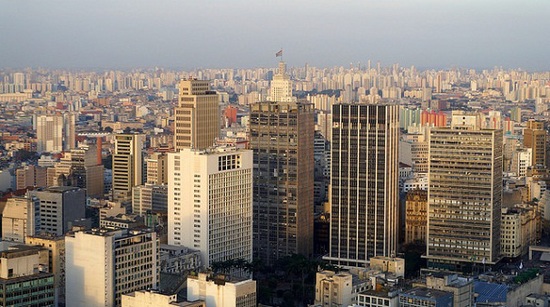The rise of non-state actors in international relations is nothing new. First-year IR students around the world read Nye’s texts on the diffusion of power and the challenges to the state as the most important actor on the international stage. While terrorist groups, protest movements during the Arab Spring or ‘civil society’ in general are seen as emerging players , the role subnational actors – such as cities and regions – is often overlooked. This is problematic because nation-state’s capacity to deal with global challenges in some sectors is weakening. Failed summits such as the recent botched attempt to effectively deal with climate change in Copenhagen also raise procedural issues. Rather than bringing together nearly 200 country representatives who are unlikely to agree on much, why not organize a meeting with the world’s 100 largest cities’ mayors to find a way to jointly reduce carbon emissions?
In the same way, municipal or regional governments could – in theory – deal effectively with many of the world’s most pressing issues. The question of how Brazil responds to illegal immigration, for example, essentially comes down to how the mayor of São Paulo deals with the issue, as most immigrants go there in search for work.
In a more fundamental way, large cities serve as laboratories that offer a glimpse into how most human beings will live in the future. While some emerging countries such as Brazil are already predominantly urban, China’s population still roughly splits evenly between people living in rural and urban regions. The majority of Indians, on the other hand, still live in rural areas, and the process of urbanization is set to drastically accelerate as formerly closed countries become active participants of the global economy.
Hundreds of millions of people will move to ever-expanding cities, requiring a innovative solutions regarding urban planning and sustainability. Even human rights issues – an area many think of as a domain exclusively reserved for national governments – play an important role, as cities often suffer from extreme inequality, providing terrible living conditions for many of its newest arrivals, especially in emerging countries such as China, India and Brazil.
Urban centers are also on the forefront of education and innovation, and they are an integral part of any government’s strategy to make the economy more competitive. When international companies take decisions about where to invest, it is often cities that compete against each other, not national governments.
Brazilian cities and regions have made significant progress in creating structures to support their paradiplomatic activities. Brazil’s decentralized system has been helpful in this context, and the Foreign Ministry has created several regional offices to support subnational governments. While richer municipalities have established nimble institutional structures, many significant regional centers – such as São José dos Campos, Manaus and Natal – have failed to do so.
As one of the 10 largest cities of the world and the economic hub of the South American continent, São Paulo should certainly play a special role. In the same way, the state of São Paulo is Brazil’s economic powerhouse and is one of the best developed regions in the Global South. They could turn into powerful voices in the global debate. Aside from attracting investments (something they have been very good at), both São Paulo state’s and the municipality’s international strategy must seek to turn São Paulo into a center of global thought leadership – ranging from innovation, educaton, public transportation, to more fundamental question of how to organize life on a planet in which the majority of people live in cities.
Read also:
Brazil: Regional perspectives matter
Do international institutions make the world a safer place?
As Brazil turns into 6th largest economy, unfamiliar challenges loom
Uni-, multi-, or nonpolar? It depends on where you ask
Photo credit: Leandro Neumann Ciuffo/Flickr









